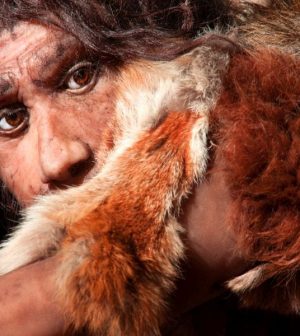- Could Your Grocery Store Meat Be Causing Recurring UTIs?
- Are You Making This Expensive Thermostat Error This Winter?
- Recognizing the Signs of Hypothyroidism
- 10 Strategies to Overcome Insomnia
- Could Artificial Sweeteners Be Aging the Brain Faster?
- Techniques for Soothing Your Nervous System
- Does the Water in Your House Smell Funny? Here’s Why
- Can a Daily Dose of Apple Cider Vinegar Actually Aid Weight Loss?
- 6 Health Beverages That Can Actually Spike Your Blood Sugar
- Treatment Options for Social Anxiety Disorder
Scientists Discover First Case of Down Syndrome in Neanderthals

Scientists have documented the first case of Down syndrome in Neanderthals, a finding which also supports the notion that these cousins of modern man were capable of providing care and support to a vulnerable member of their group.
“The results have significant implications for our understanding of Neanderthal behavior,” said researcher Rolf Quam, a professor of anthropology at Binghamton University in New York.
The study, published June 26 in the journal Science Advances, involves the skeletal remains of a Neanderthal child that researchers affectionately named “Tina.”
Tina was found at Cova Negra, a cave in Valencia, Spain, long known for yielding important Neanderthal discoveries.
CT scans of Tina’s skull revealed that she suffered from a deformity of the inner ear associated with Down syndrome.
It would have produced severe hearing loss and disabling vertigo. Nevertheless, Tina survived to at least 6 years old, researchers noted.
To do that, she would have needed extensive care from those around her, researchers said.
It’s been known for decades that Neanderthals cared for disabled individuals. However, all known cases to date involved adults, leading some to argue these represent a reciprocal exchange of help between equals rather than truly altruistic behavior.
“What was not known until now was any case of an individual who had received help, even if they could not return the favor, which would prove the existence of true altruism among Neanderthals. That is precisely what the discovery of ‘Tina’ means,” said lead researcher Mercedes Conde, a professor at the University of Alcalá in Spain.
More information
The Smithsonian Institution has more about Neanderthals.
SOURCE: Binghamton University, news release, June 26, 2024
Source: HealthDay
Copyright © 2026 HealthDay. All rights reserved.










